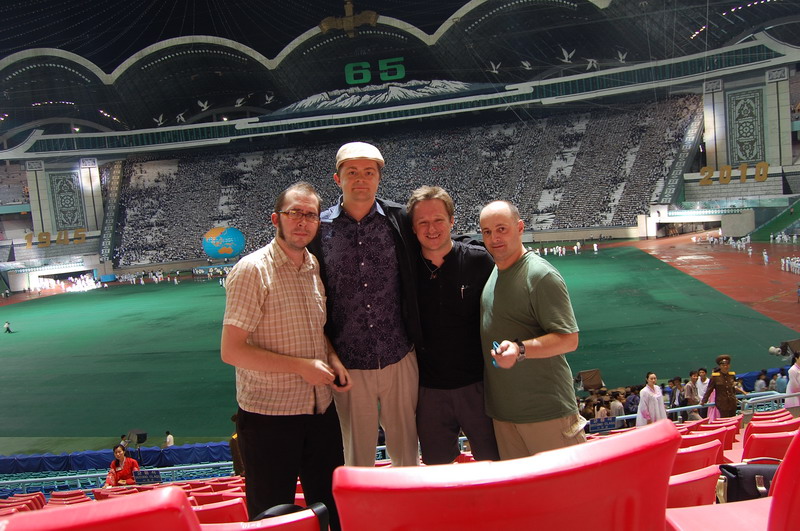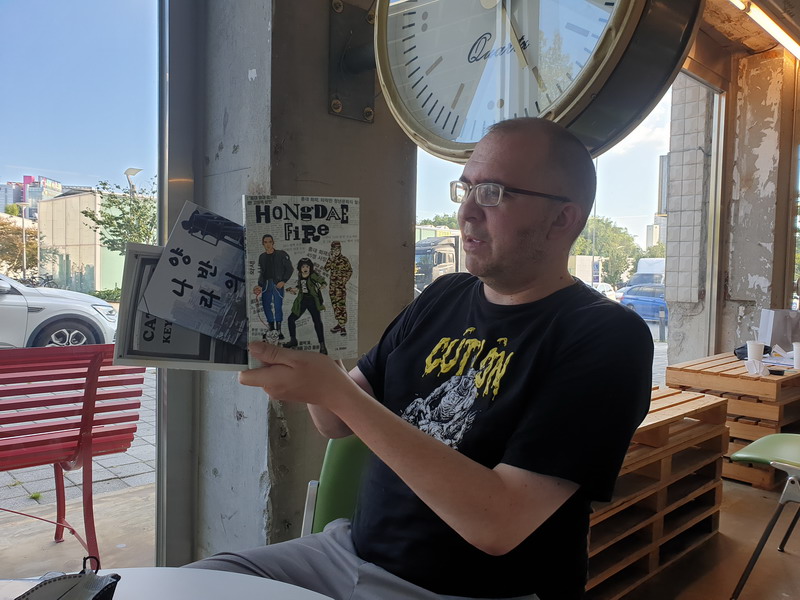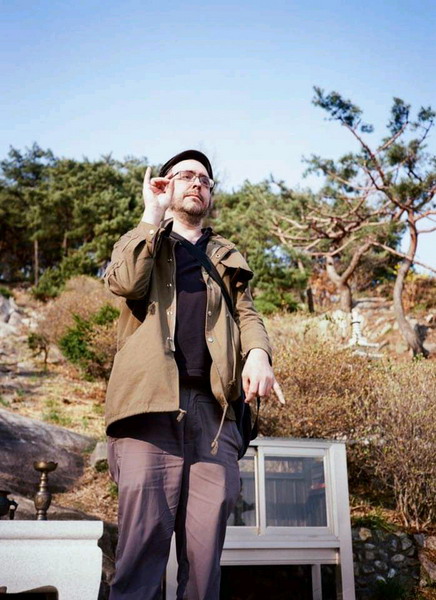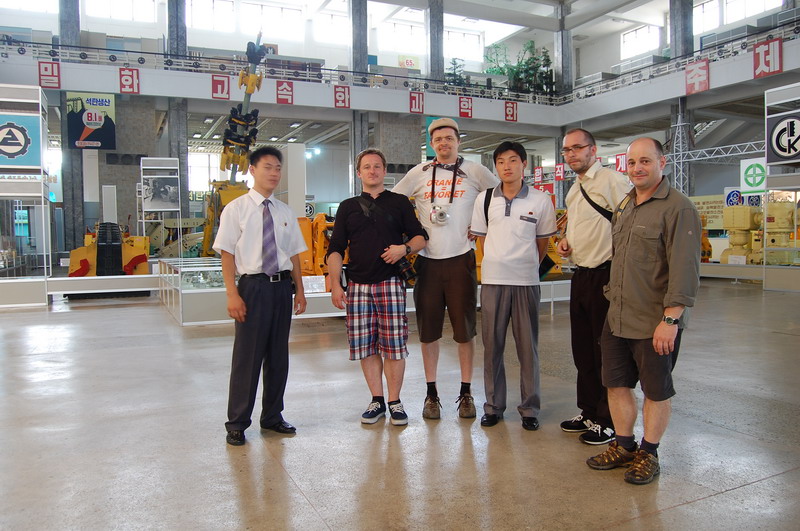Three Things with Jon Dunbar
By William Urbanski
In many ways, Jon Dunbar is the antithesis of the average Western expat in Korea. In stark contrast to the majority of young men and women who come over to spend a few years teaching English, he is a copy editor for The Korea Times, is heavily involved in both urban exploration and the Korean punk scenes, has a wealth of knowledge about Korea, and also has a number of interesting insights into the inner workings of Korean society and the insular foreigner bubble in which a great deal of us tend to live. While it is certainly a great and culturally rewarding thing to be a foreign teacher in Korea (I, for one, have been at it for over a decade), all too often, people barely scratch the surface of what Korea really has to offer. It is always interesting for me to chat with someone who not only has been in the country for a long time, but who also has found employment outside of the educational sector – a rare feat indeed.
One problem I encountered when trying to decide on a piece about Dunbar was that it became evident that he was involved in an impressive array of activities, to the point where it was hard to narrow down exactly what to talk about. Ultimately, in lieu of a traditional Q&A-style interview, I thought it would more interesting to briefly get his thoughts on just three things.

Royal Asiatic Society
Dunbar is an active member of the Royal Asiatic Society (RAS) Korea in Seoul. The organization, according to its website, “is the world’s oldest Korean studies organization, designed to introduce people to the beauty of this land in all its many aspects. Founded in 1900, it is also arguably the most active international cultural and social organization in Korea.” This organization is a little similar to the Gwangju International Center here in Gwangju but seems a little bit more academically focused, especially with regards to its bimonthly lectures that focus on a plethora of Korea-related topics. It also leads guided excursions, has a library on topics related to Korea, and also publishes an annual journal by the name of Transactions of the Royal Asiatic Society Korea Branch, for which Dunbar serves as general editor.
Dunbar was forthcoming about how being involved with the Society was part of a networking strategy, as several members are long-term expats of various professional backgrounds, and the Korean members tend to be extremely helpful. Some of the members are even internationally known for one reason or another. In terms of demographics, the membership of the RAS Korea Branch has a number of retirees who have lived in Korea for decades.
While a large majority of foreign expats come to Korea for less than five years, Dunbar astutely pointed out that these older, long-term expats bring a sense of continuity and depth to a community that is all-to-frequently short-term and superficial. While the RAS is not so much focused on learning the Korean language, this association makes substantial efforts to be a community that integrates itself into Korean society at large.

Being an Author
Dunbar is the author of two books and has published various zines. The zines and books (the Gwangju News reviewed his excellent book Hongdae Fire in April of 2021) are printed via Dunbar’s company Broke Publishng. The misspelling of “publishing” is deliberate and is meant to parody the publishing industry as a whole. All this sounds like a lot of work, and when I asked him about his motivation for doing it, his answer was simple: “Why not?” Dunbar said he is always writing, and zines provide an interesting opportunity to both play with the format of a standard magazine while also acting as a parody of the publishing industry itself. Zines, as a medium, tend to be minimal and deal with counterculture topics. For anyone who is serious about writing, Dunbar’s suggestion was to write smaller things about what you know while tackling the longer-term projects.
Diplomatic Scuffles
Since Canada detained (at Washington’s request) Meng Wanzhou, CFO of Chinese tech giant Huawei, Canada–China relations have not been so great. Without rehashing all the details of the legal and diplomatic wrangling, what is important to know is that China, in timing that could hardly be regarded as coincidental, arrested Canadian diplomat Michael Kovrig and Canadian tour guide operator Michael Spavor on espionage charges. Spavor ran a company, Paektu Cultural Exchange, that used China as an entry point to North Korea and seemed genuinely interested in bringing attention to everyday North Korean culture, while also exposing North Koreans to the outside world through cultural and sports exchanges. The arrest, detention, and conviction of these Canadians were largely understood to be a direct retaliation against Canada for Meng’s arrest, despite China’s insistence that the men were spies.

Dunbar has been an acquaintance of Spavor since 2006 and even traveled to North Korea with him on a couple of occasions. Speaking about Spavor’s detention before the recent releases, Dunbar did not mince words: “The situation is garbage, and he is a political prisoner.” “Michael is just a guy who moved to China and lived there because he wanted to be between the two Koreas.” When asked about how he expected this whole ordeal would play out, Dunbar predicted that after the CFO is released, both Canadians would go free.
We conducted this interview in early September, and just a few weeks later, Dunbar’s prediction came true, almost to a T. Within hours of the CFO being released, China released both Canadians, essentially proving that China’s accusations of espionage against the Canadians were bogus, baseless, and without question, pure political maneuvering. The only thing that surprised Dunbar was the speed with which China released the men, as he expected China to at least wait a few days so that they did not, you know, look like they had arrested the men without due cause.
In Closing
While Dunbar started the first year of his Korea journey in a typical manner as an English teacher, he has used his time here to do what he is good at and what he likes. While his path may be untraditional in a sense, it shows just how many opportunities Korea has when you are willing to branch out and dig deep.
The Author
William Urbanski is the managing editor of the Gwangju News. He is from Canada, married, and can eat spicy food with chopsticks.
Instagram @will_il_gatto




